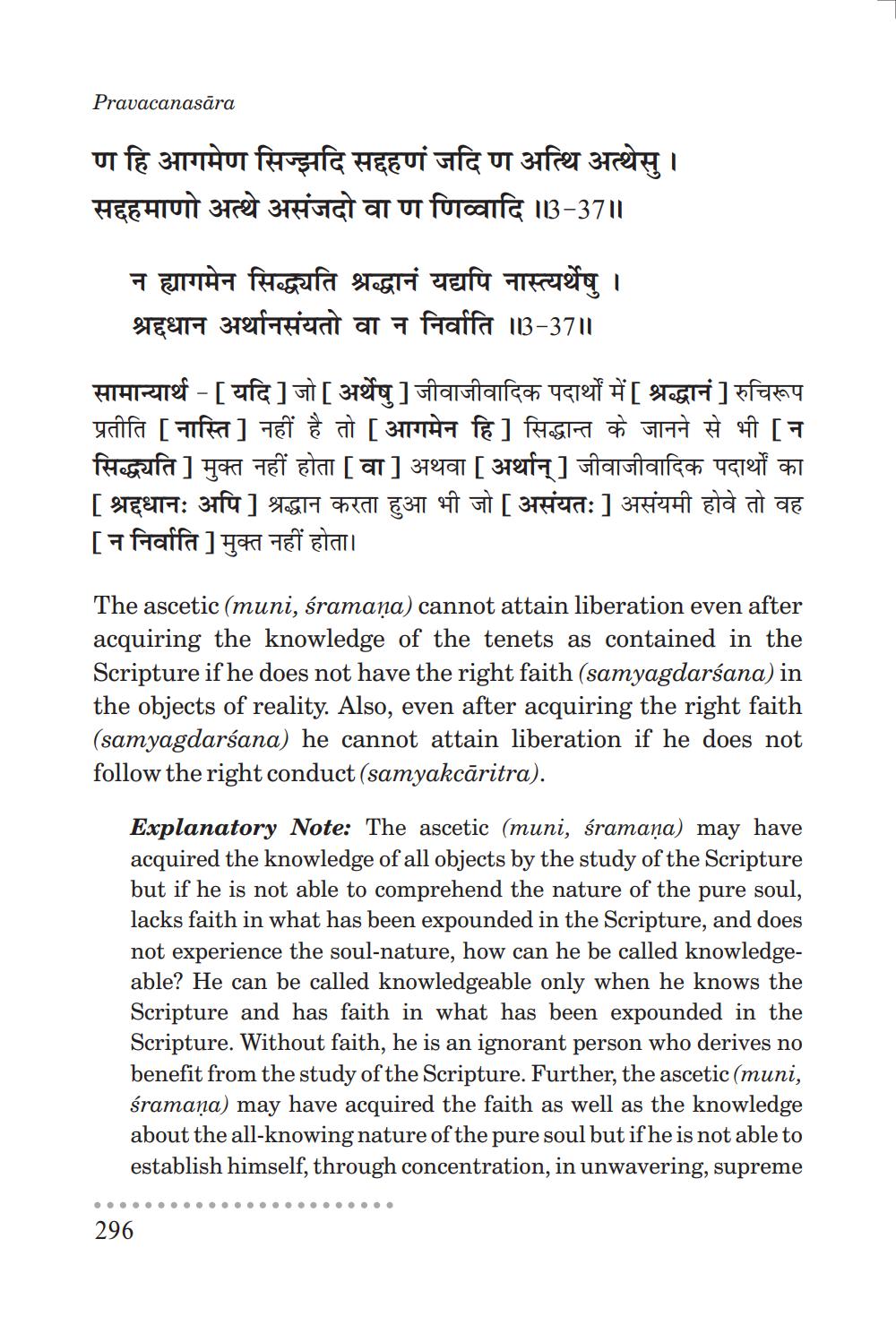________________
Pravacanasāra
ण हि आगमेण सिज्झदि सद्दहणं जदि ण अत्थि अत्थेसु । सदहमाणो अत्थे असंजदो वा ण णिव्वादि 8-37॥
न ह्यागमेन सिद्धयति श्रद्धानं यद्यपि नास्त्यर्थेषु । श्रद्दधान अर्थानसंयतो वा न निर्वाति ॥3-37॥
सामान्यार्थ - [ यदि ] जो [ अर्थेषु ] जीवाजीवादिक पदार्थों में [ श्रद्धानं ] रुचिरूप प्रतीति [ नास्ति ] नहीं है तो [आगमेन हि ] सिद्धान्त के जानने से भी [न सिद्ध्यति ] मुक्त नहीं होता [ वा ] अथवा [अर्थान् ] जीवाजीवादिक पदार्थों का [श्रद्दधानः अपि] श्रद्धान करता हुआ भी जो [ असंयतः] असंयमी होवे तो वह [न निर्वाति ] मुक्त नहीं होता।
The ascetic (muni, śramana) cannot attain liberation even after acquiring the knowledge of the tenets as contained in the Scripture if he does not have the right faith (samyagdarśana) in the objects of reality. Also, even after acquiring the right faith (samyagdarśana) he cannot attain liberation if he does not follow theright conduct (samyakcāritra).
Explanatory Note: The ascetic (muni, śramaņa) may have acquired the knowledge of all objects by the study of the Scripture but if he is not able to comprehend the nature of the pure soul, lacks faith in what has been expounded in the Scripture, and does not experience the soul-nature, how can he be called knowledgeable? He can be called knowledgeable only when he knows the Scripture and has faith in what has been expounded in the Scripture. Without faith, he is an ignorant person who derives no benefit from the study of the Scripture. Further, the ascetic (muni, śramaņa) may have acquired the faith as well as the knowledge about the all-knowing nature of the pure soul but if he is not able to establish himself, through concentration, in unwavering, supreme
296




